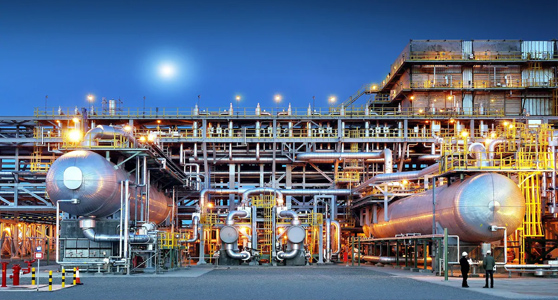Natural Gas has unprecedented potential to impact positively on the economy of any nation that is endowed with it. As a fuel, it burns cleaner and has become the fuel of choice for power globally, especially in light of the global trend towards climate conservation and energy transition within the context of energy security. As feedstock, it can catalyse major industrial growth through fertlizer, petrochemicals and other related gas-based industries. Nigeria is presently ranked 9th globally in size of proven and probable natural gas reserves.
Our Gas Story

According to recent estimates, natural gas reserves in Nigeria could be as high as over 600 trillion cubic feet if properly explored, representing a huge untapped potential. Regarded as one of the best in the world, Nigeria's Natural Gas is low in impurities. Despite this advantage, historical natural gas flaring has constituted a phenomenal wastage of Nigeria's resources. However considerable successes have been recorded in reducing flaring and recent initiatives are planned to achieve zero routine flaring. Nevertheless, prior to 1975, the natural gas sector saw a huge amount of flaring because natural gas was deemed a nuisance to oil exploration and production activities.

The successful implementation of Nigeria LNG in 1999 heralded the start of the evolution of Nigeria's natural gas sector. Through very favourable and attractive fiscal incentives, there was a proliferation of new export-oriented projects such as the West African Gas Pipeline and the Escravos Gas to Liquid project. There is now a broad acknowledgement that Nigeria’s path to energy security and wealth creation is hinged on increased domestic utilisation of our huge gas resources, while optimising and increasing export channels.

The successful and rapid development, establishment and implementation of functioning gas-based industries within the country will require private sector participation, such that Government's role should be limited to providing the appropriate commercial and regulatory frameworks to stimulate this. Nigeria’s Decade of Gas Initiative represents a concerted effort by the government and private sector to leverage the country's abundant natural gas resources for economic development and energy transition.

The initiative, launched in 2021, aims to transform Nigeria into a gas-powered economy by 2030 through a series of policy reforms, infrastructure development, and investment attraction strategies. The initiative focuses on Gas Infrastructure Development; Policy Reforms & Regulatory Frameworks; Gas for Export; Gas to Power; Gas to Homes; Gas to Industries; Gas for Transportation and Gas Sector Capacity Building. By harnessing gas as a catalyst for economic growth, Nigeria aims to achieve inclusive prosperity, energy security, and environmental sustainability by 2030.
